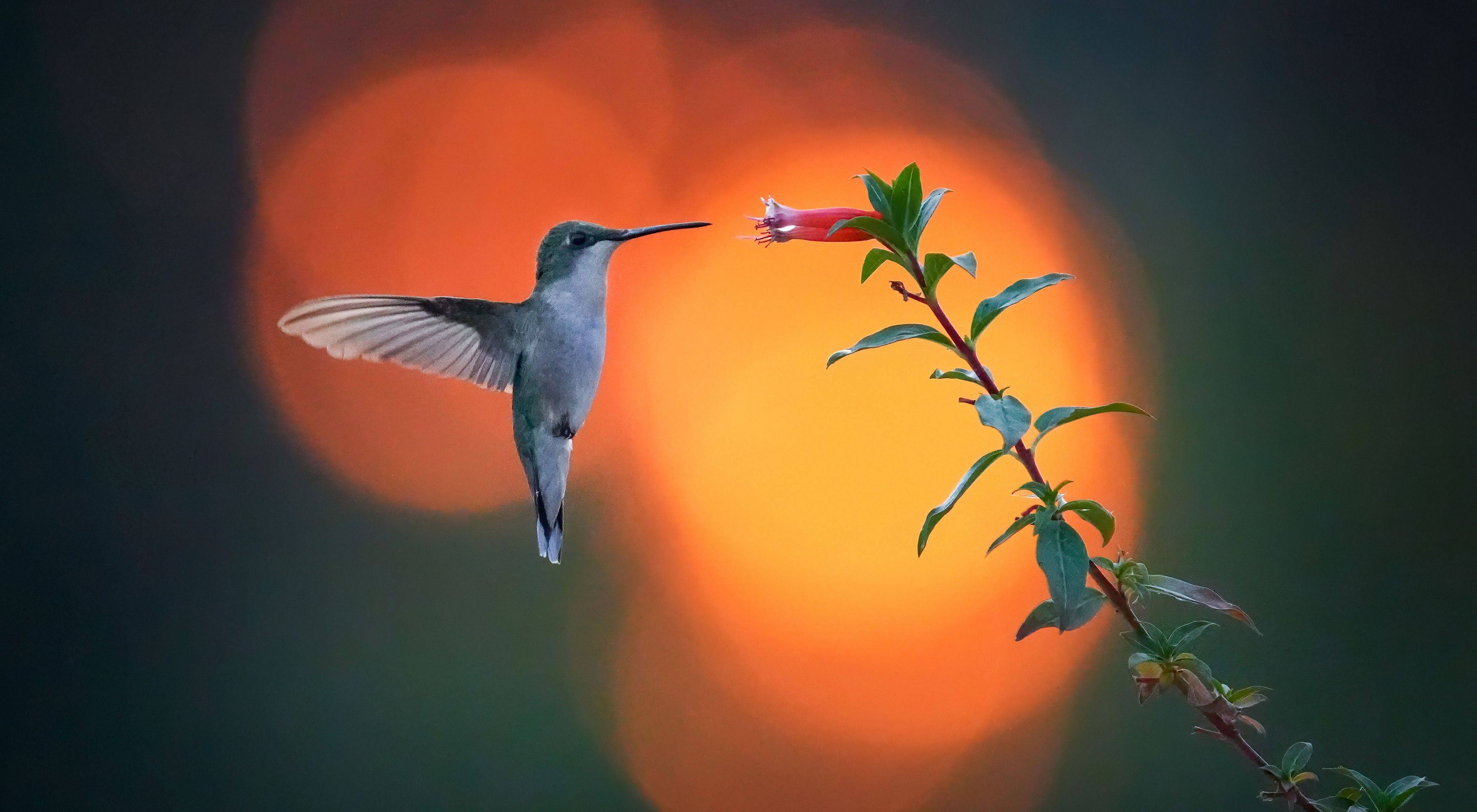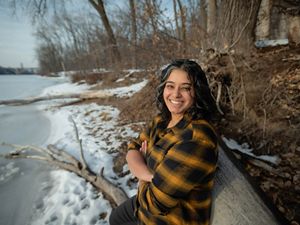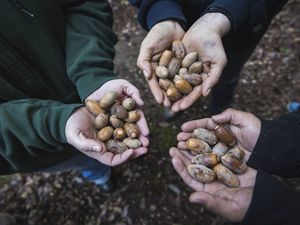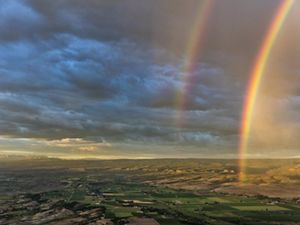Strength through Diversity in Wisconsin
Protecting nature will take all voices at the table.
Keep in Touch
Sign up for our monthly Nature News to keep up with our work in Wisconsin!
We know that nature provides a respite and a remedy for many challenges facing society today. We also know that we don’t all benefit equally from nature. Air, water and other types of pollution, along with the impacts of extreme weather events caused by climate change, disproportionately affect low-income, Black, Native American, Latinx and other communities of color.
Protecting nature so that it can thrive and protect all of us is going to require complex solutions and all voices at the table.
Strength through Diversity is one of five priorities in The Nature Conservancy’s Wisconsin strategic plan. Diversity encompasses the many identities—including race, religion, sexual orientation, ability and gender—reflected in the people who call Wisconsin home. With input from our Board of Trustees and other professionals, we’ve recently created and adopted a multi-year diversity, equity and inclusion (DEI) plan to complement our strategic plan of conservation action.
Highlights of that work include the implementation of recruitment and retention best-practices that are more transparent and equitable, such as diversifying and broadening the groups and job boards where new positions are shared, not using video in first-round interviews and providing pay transparency. We are also providing educational and training opportunities that delve deep into interpersonal and professional growth and ensuring ongoing measurement of and check-ins on individual and organizational progress on our DEI goals.
Quote: George Koonce

At TNC we must challenge one another when it comes to diversity and inclusion. We have to be able to practice with one another and stretch one another, because it's not easy.
Another element is the Wisconsin DEI Committee, a working group that meets regularly to discuss and plan events and educational opportunities for the chapter, while also advising overall efforts and providing peer support and accountability.
We have also begun the complex but important work of defining and creating comprehensive strategies for implementing equitable conservation practices. You can read more about how we approach equitable conservation, specifically in our Cities programs, here.
There’s still much work to be done. Equitable conservation and DEI are marathons, not sprints, but we know that by committing to the work alongside our partners and members will only lead to more positive and long-lasting outcomes for people and nature.
For more thoughts on this important work, Wisconsin trustees Pat Kampling, Dr. George Koonce and Chris Noyes—who are helping advance the chapter’s DEI work—spoke about these efforts in an interview with Wisconsin State Director Elizabeth Koehler.

Elizabeth: Can you each please tell us a little bit about your connection to nature and The Nature Conservancy?
George: The Nature Conservancy brings back a lot of beautiful memories of my youth. Growing up in eastern North Carolina, I was free to explore rivers, fields, forests, the ocean, lakes and parks, to spend time there with my family and on special occasions, and that really exposed me to God's creation and God's beauty. And that's basically what has made me who I am today. The Nature Conservancy works hard to preserve and protect our beautiful land, water and wildlife. This gives me great hope for the future of my children and grandchildren.
Chris: I'm fifth generation Wisconsin; my great-grandfather started going to northwestern Wisconsin in the 1880s and established a camp on the Brule River with two of his friends from the Milwaukee area. That property is still in our family over 140 years later. I grew up going there for two weeks each summer, and that's where I first got exposed to nature and canoeing and fishing. I learned about The Nature Conservancy in the early 1980s when our family, along with almost 20 others along the Brule River, granted conservation easements to TNC to ensure that those properties along the upper Brule River would always be protected from development.
Pat: My connection's a little different growing up and working in cities. In Queens, New York, we had few parks and our yards were small, but my mother and my grandmother took the little plot of land we had and always had the most beautiful gardens. And I'd love to help in the garden from a very early age. What opened my eyes to The Nature Conservancy was when we lived in the western suburbs of Chicago and witnessed the impacts of the rapid development in the area. As the farmland quickly turned into shopping centers and housing developments, the flooding started. It occurred to my husband and me that “we are not working with nature here.” So that stirred my interest in how we can be a good partner with nature because nature wins. That's really where my passion comes from.

Elizabeth: We know that not everyone has equal access to nature or its benefits. Do TNC and/or other nonprofits have a role to play here?
George: Absolutely! This is the perfect time to form and strengthen partnerships to help and encourage all people to enjoy nature and spend time outdoors with their families, but it is so much more than that. As a child growing up, we would celebrate my grandmother's birthday each year in a park on the edge of the Neuse River in North Carolina. This was very important to my grandmother, who had little to no rights; she was 57 years old before she had the right to vote. She did, however, have the right to celebrate nature, and celebrate nature we did. My grandmother died in 2008 at the age of 96. I know that with the resources and the leadership we have on our board at The Nature Conservancy, we can come up with more ways to strengthen our current partnerships, and create new ones, with nonprofit organizations to engage more people with nature and our mission. Helping others see what a wonderful right and privilege we all share. It is imperative that we all care.
Pat: I agree, and I’m excited about the conservation initiative that TNC has underway in the Milwaukee area. We’re just getting started, but with the hiring of an urban conservation manager this year, I think we can make an impact in this area.
Elizabeth: Another important goal for us is to try to build more diverse staff and leadership at TNC. Any thoughts for us on that and what you’ve seen work in other places?
Pat: I would say it takes effort, a lot of effort and a lot of commitment and passion. It will require hard, honest discussions, and, I think it can be helpful to bring in people from the outside who can help push the organization a bit.
Chris: I agree with Pat and would add that, as we’ve seen in our law firm, it can take time. Wisconsin is not terribly diverse, and it's sometimes hard to attract people of color to the state. At our firm, we established scholarships at both Marquette and the University of Wisconsin law schools that helped the recipient with tuition and ensured a job with us during the summer between their first and second years. It's taken a while, but we stuck with it. I’ve been with the firm for 37 years, and in the last 15 years since we've had this program in place, the firm has become much more diverse among both associates and partners.

Elizabeth: Earlier Pat mentioned having hard conversations related to DEI. George, I’ve appreciated your willingness to help me understand the conversations that you are interested in helping us have. Can you comment on that?
George: Yes, and to speak to that, I'm going to use a football analogy. Before each season, you have training camp to get you in shape, to stretch you, to get you ready for what's to come. In the same way, at TNC we must challenge one another when it comes to diversity and inclusion. We have to be able to practice with one another and stretch one another, because it's not easy. And that’s what we’re doing now as a Board, and I’m happy to help us do that.
Elizabeth: Why is Strength through Diversity one of TNC’s core priorities?
George: It’s a core priority for many reasons. It just makes sense that problem-solving becomes much easier when it is viewed from different angles. We most certainly gain strength through diversity as it increases the chances that we will find solutions, innovations and important answers to conservation questions. Valuing diversity means that we are aware of and appreciate our differences. In doing this, we can make a positive impact and have a better understanding of our own actions and the impact we have on others and the environment.
Chris: We cannot be a successful or effective organization if we do not reach out to and connect with all populations, particularly with people of color. Our core priority of Strength through Diversity ensures that, in everything we do, whether programs, protection activities or our hiring practices, we will use that as the foundation in our decision-making.
Pat: We need to appreciate the value that people from all walks of life can add to every conversation. Involving people with different experiences and points of view will no doubt lead to better outcomes in all the important work that we do. Watching how nature works together effortlessly can be our guide for Building Strength through Diversity.
If you'd like to learn more about The Nature Conservancy's commitment to diversity, equity, and inclusion, visit our Diversity and Inclusion page and our organizational values. We will continue to share updates on our activities and learning.
Pat Kampling is a Nature Conservancy trustee in Wisconsin. She formerly served as Chairman of the Board and Chief Executive Officer of Alliant Energy Corporation.
Dr. George Koonce is a Nature Conservancy trustee in Wisconsin. He is the Senior Vice President of University Relations at Marian University in Fond du Lac, former Green Bay Packer, and a current member of the Green Bay Packers Board of Directors.
Chris Noyes is a Nature Conservancy trustee in Wisconsin. He is an attorney with the Milwaukee-based law firm of Godfrey & Kahn and has served on multiple nonprofit boards across the state.



